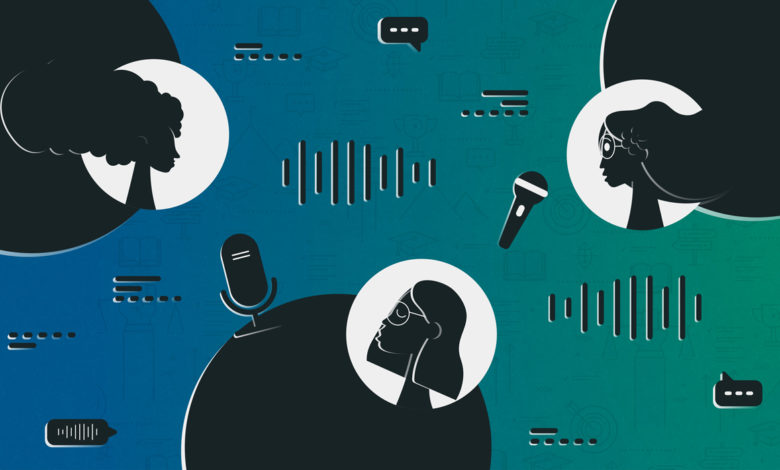
What does it look like to enter a market where almost half of the entrepreneurs fail shortly after starting?
Those are the odds that face new podcasters. Forty-four percent of all podcasts have three episodes or less. The gates are wide open for anyone to try. So many do, and many fail.
However, in a recent Career: Reset interview, podcaster and Arizona engineering doctoral student Jay Shah shared his experience of growing his following for a machine learning-themed podcast. Not only does it cover the niche topic of ML/AI, but he beat the odds, recently launching his 31st episode to his 2K+ subscribers.
Here are his insights on how he set himself up for success and avoided some common problems on a mainstream platform:
Understand the real demands of your project
One advantage of creating a podcast is that there is a relatively low barrier to entry. All you need to start a podcast is a computer… along with a strategic plan for new and engaging content, the ability and time to consistently create that content, and a way to grow an audience interested in your series. So basically, you need a computer and a whole lot of work and elbow grease.
During the interview, Jay noted that he had to track trends and find an opening in the market before he even started his podcast. He did his research not just on his topic but also on the medium. From there, it involved a lot of troubleshooting. If you were to look back at his original episodes, it is easy to note the differences. Over time, he figured out what worked and what didn’t. A glance would show you that he updated the style of his videos’ YouTube thumbnails and restructured the background of the room where he filmed to make it more aesthetically pleasing. He also cultivated his on-camera presence and fixed many other problems that only he will ever know about. So, yes, a podcast has a low barrier to entry cost. It does not have the same production expense as launching a new series on the Discovery Channel. Even though the content is the major factor deciding its value for a podcast, subtle additions and edits that can help listeners have a good experience learning from the content are critical. Anyone can host a podcast. You need a device, and it is entirely on you whether it survives past the third episode.
Understand the needs of all involved parties
Another major component of Jay’s endeavor was weighing the needs of his interviewees against the needs of his audience. Interviewees have their preferred talking points, and the audience have their expectations for content. It was his job, as the mediator, to bring the two groups together. And believe it or not, this meant more work. He needed to research his interviewees thoroughly to understand their unique expertise and the insights they could bring. A podcast is only as great as the questions you ask. No interviewee is the same, so the best way to get some variety on your series is to understand the interviewee’s interests and fortes and how to map that to the audience’s interests. Then it was a matter of dissecting those thoughts and cultivating questions that would provide that value add his audience was expecting. Finally, he went on to say that, above all, he focused on finding interviewees that were a good fit for the podcast. He made an intentional decision to choose interviewees who help fulfill the podcast’s purpose rather than guests who could provide connections or some other personal gain.
Stay focused on your primary objective
Throughout our interview, Jay emphasized multiple times that the goal of his podcast is to help other students. He wants to give them access to information that will help them make better career choices. This objective serves as a guiding point when selecting interviewees and creating each episode. It motivates him to continue creating content while providing a framework of consistency for that content creation. And consistency of creation and content are vital, especially when it comes to self-motivated endeavors like hosting a podcast. By focusing on other students, Jay can keep himself on task and continue to grow his series and his following. Having consistency is the stepping stone to building a “compounding effect” for your podcast channel. It might not be visible at first in the initial stages, but if you’re in for the long term, you’ll see its benefits as you go along.
In the end, it is clear that, while hosting a podcast sounds fantastic, it is not for the faint of heart. It is an endeavor that is easy to start, but without the necessary work behind the scenes, it is also easy to fail. Hopefully, by taking these tips from Jay, you too can grow your following, regardless of what your niche may be. If so, be sure to give us a shout at Career: Reset to let us know when you hit episode #4. We are rooting for you!






